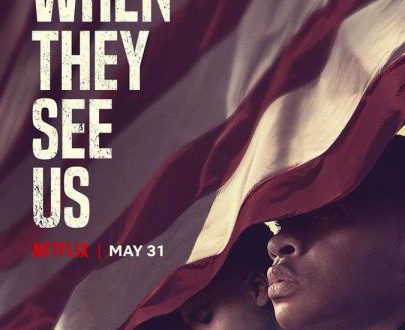If you’re like me, when I go to my friendly, neighborhood multiplex to enjoy a film I am committed to the process of taking in as much of the movie as I can. I tend to only go to see movies that will speak to me, hold my interest by delivering an experience that appeals to me based on genre or actor, or that I’m curious about. So, in a sense, I have a vested interest in what happens on the silver screen. I also have a vested financial interest, the money I paid to see the film. And I also invest time sitting in a darkened room with the expectation of being entertained.
So as you can see, I plan on getting something out of the experience. Call it an expectation.
And it’s not enough to simply show up for the movie-going experience. If I want to make the most of my time in the theater I have to be engaged in what’s happening onscreen. I have to actively listen and watch the movie. Yes, I can engage in secondary activities like consuming concession stand snacks or holding hands with my date; but my primary activity while in the theater is to glean as much meaning as I can from what’s going on on the screen and the sounds that I hear.
Personally, I don’t have a running commentary of what’s going on in a movie. I’m not sitting there formulating an alternative means of how the story could or should unfold, I simply take it in. I don’t put together my response to the film while I’m watching it. I can critique it after I’ve seen the film in its entirety. The only agenda I strive to have is to simply take the film in and block out all other distractions.
Afterwards, I talk with people about what I saw, how I interpreted it, what it meant to me, ask questions, blah, blah, blah.
This is how most of us engage in watching a movie.
This is also what I mean by active listening.
This is the approach Americans should take when speaking to one another about racism. Engage one another in a receptive state of mind, to not only hear what the other person has to say, but to listen with the intention to understand as fully as possible.
Listening to another person’s experience does not negate your experience. The discussion may challenge you to suspend your disbelief, the same way we all did when the twister dropped Dorothy in that town over the rainbow in “The Wizard of Oz,” but suspension of disbelief makes understanding a lot easier.
When we stop, listen, and open our hearts to one another we recognize the hurt and irreparable damage racism has inflicted upon all of us. The loss of life, the physical injuries, the deep emotional scars, the shame, the rage, the hatred, the fear, the self-loathing, and the images seared into our memories — we all recognize these afflictions because they have taken root in all of us. It’s uncomfortable to see one another’s pain, but the greater understanding, empathy, and growth that exists on the other side is … well, freeing.
The answer to America’s issues with race is so simple yet it continues boggles our minds: reconciliation. America as a nation and Americans individually must examine their respective pasts and reconcile the notion that all men are created equal with the fact that racism (institutional and personal) is no longer tolerable.
In this thing called life, everyone is both student and teacher. We learn from one another. To boil the solution down to its essence: we must begin to love one another or at the very least see the humanity in one another.




